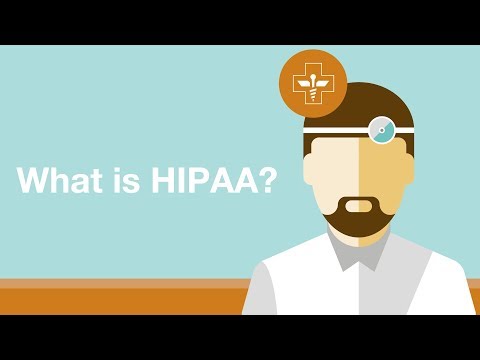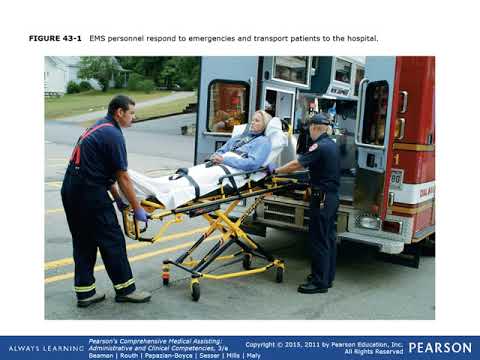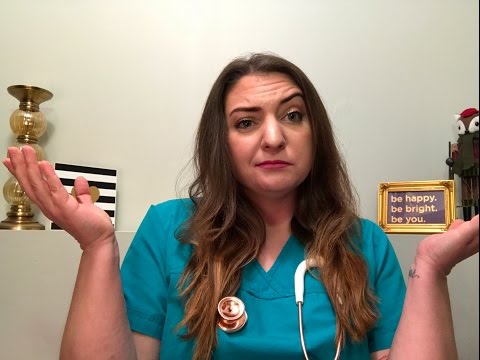What Medical Assistants Need to Know About HIPAA
Contents [show]
Medical Assistants need to be up-to-date on HIPAA compliance. This blog post will give you an overview of what you need to know to stay compliant.
Checkout this video:
Introduction
Medical assistants play a vital role in ensuring the privacy and security of patient health information. The health insurance Portability and Accountability Act (HIPAA) is a federal law that sets standards for the protection of patient health information. HIPAA requires covered entities, such as healthcare providers and health plans, to take steps to safeguard the confidentiality, integrity, and availability of this information.
Medical assistants need to be aware of HIPAA requirements in order to help their employers comply with the law. They should understand how to safeguard patient health information and how to report any suspected or actual privacy or security breaches. This knowledge will help ensure that patients’ health information is protected and that their privacy rights are respected.
What is HIPAA?
The health insurance Portability and Accountability Act (HIPAA) is a set of regulations that protect the privacy of patient health information. HIPAA was enacted in 1996, and the regulations went into effect in 2003.
Medical assistants need to be familiar with HIPAA because they may be responsible for handling patient health information on a daily basis. HIPAA regulates how this information can be used, disclosed, and stored. Violations of HIPAA can result in criminal penalties, including fines and imprisonment.
Under HIPAA, patient health information is known as “protected health information” (PHI). PHI includes any information that can be used to identify an individual, including the individual’s name, address, date of birth, Social Security number, and medical records. PHI also includes more sensitive information such as genetic information and mental health records.
There are four main categories of protections under HIPAA:
1) Privacy: This refers to the rules governing the use and disclosure of PHI. Medical assistants must take steps to ensure that PHI is only used for authorized purposes and is not disclosed to unauthorized individuals.
2) Security: This refers to the rules governing the electronic transmission of PHI. Medical assistants who work with electronic health records (EHRs) must take steps to protect PHI from unauthorized access, disclosure, or theft.
3) Breach Notification: This refers to the rules governing the notification of patients in the event that their PHI is lost or stolen. Medical assistants who work with PHI must be familiar with these rules in order to properly notify patients in the event of a breach.
4) Enforcement: This refers to the rules governing investigations and penalties for violations of HIPAA. Medical assistants should be aware of these rules in order to avoid penalties for themselves or their employers.
The HIPAA Privacy Rule
The HIPAA Privacy Rule is a set of federal regulations that protect the privacy of patients’ health information. Medical assistants need to know about the Privacy Rule so that they can properly handle patients’ medical records and other protected health information (PHI).
The HIPAA Privacy Rule establishes boundaries on when and how PHI can be used or disclosed. PHI is any information that could reasonably identify an individual and that is created or received by a healthcare provider in connection with providing healthcare services. This includes patients’ names, addresses, birthdates, diagnosis and treatment information, as well as laboratory and test results.
The Privacy Rule gives patients the right to access their own PHI, and it sets limits on who can look at and receive PHI. In general, PHI can only be disclosed with the patient’s written consent, although there are some exceptions. For example, PHI may be disclosed without consent in order to treat the patient or for public health purposes.
Medical assistants need to be aware of the Privacy Rule so that they can properly handle patients’ PHI. They should know how to keep PHI confidential and how to get patients’ consent before disclosing PHI to others.
The HIPAA Security Rule
The HIPAA Security Rule requires covered entities to put in place physical, technical, and administrative safeguards to protect the confidentiality, integrity, and availability of ePHI.
Physical safeguards are intended to protect ePHI from physical threats such as fire, flooding, and unauthorized access. Technical safeguards are designed to control access to ePHI and protect it from unauthorized uses or disclosures. Administrative safeguards address the need for policies and procedures to direct staff on how they should handle ePHI.
The HIPAA Breach Notification Rule
All covered entities must provide notification following a breach of unsecured protected health information. A covered entity must provide the notification no later than 60 days after the discovery of a breach. If the covered entity has a business associate that maintains or stores protected health information on its behalf, then the business associate must provide notification directly to the affected individual and notify the covered entity of the breach so that it can comply with its own notification obligations.
A covered entity must provide notification to each individual whose unsecured protected health information has been breached. The notification must include, at a minimum:
– A description of the types of unsecured protected health information that were involved in the breach (such as full name, social security number, date of birth, home address, or account numbers);
– The steps individuals should take to protect themselves from potential harm resulting from the breach;
– A description of what the covered entity is doing to investigate the breach, mitigate harm to individuals, and protect against further breaches; and
– Contact information for questions or additional information, including a toll-free telephone number, an email address, website URL, or postal address.
The HIPAA Enforcement Rule
The health insurance Portability and Accountability Act (HIPAA) is a federal law that sets standards for how patient health information is protected. The US Department of Health and Human Services (HHS) Office for Civil Rights (OCR) is responsible for enforcing the HIPAA regulations.
The HIPAA Enforcement Rule sets penalties for covered entities and their business associates who violate the HIPAA Privacy, Security, or Breach Notification Rules. Under the Enforcement Rule, OCR may impose civil monetary penalties on covered entities and their business associates for violations of the HIPAA rules.
OCR may also impose criminal penalties on individuals and entities that knowingly commit HIPAA violations. The maximum criminal penalty for a HIPAA violation is $50,000, imprisonment for up to one year, or both. The maximum criminal penalty for a knowing violation that results in the unauthorized disclosure of PHI is $250,000, imprisonment for up to ten years, or both.
Covered entities and their business associates should take steps to ensure compliance with the HIPAA rules to avoid potential penalties.
The HIPAA Omnibus Rule
The HIPAA Omnibus Rule was published in the Federal Register on January 25, 2013. This final rule adopts numerous provisions of the Health Information Technology for Economic and Clinical Health Act (HITECH Act) enacted as part of the American Recovery and Reinvestment Act of 2009 (ARRA). The final rule also modifies other HIPAA Regulations to implement other policies set forth in HITECH, to increase the penalties for noncompliance with the rules, and to strengthen individuals’ privacy protections.
The HIPAA HITECH Act
The health insurance Portability and Accountability Act of 1996 (HIPAA) was enacted by the U.S. Congress and signed by President Bill Clinton in an effort to protect the privacy of patient health information. The HIPAA Privacy Rule went into effect in 2003, and the HIPAA Security Rule was established in 2005. The HITECH (Health Information Technology for Economic and Clinical Health) Act, enacted in 2009, further strengthened the privacy and security provisions of HIPAA.
As a medical assistant, it is important that you have a basic understanding of HIPAA and the HITECH Act. This will enable you to properly safeguard the confidential health information of your patients.
What is Protected Health Information (PHI)?
PHI is any information about a patient that can be used to identify that individual and that relates to his or her past, present, or future physical or mental health or condition. This includes, but is not limited to, such things as:
-The patient’s name
-Address
-Birthdate
-Social Security number
-Medical record numbers
-Insurance plan numbers
-Diagnoses
-Treatment plans
-Results of laboratory tests and X-rays
How does HIPAA impact Medical Assistants?
The health insurance Portability and Accountability Act, better known as HIPAA, is a set of regulations designed to protect the privacy of patients’ medical information.
Medical assistants need to be aware of HIPAA and how it applies to their work. Although they may not have direct patient contact, they still have access to patient medical records and other confidential information.
It’s important for medical assistants to understand what HIPAA is and how it affects their job. They should know what information is considered confidential and how to protect it. They should also be familiar with the penalties for violating HIPAA regulations.
Conclusion
The Department of Health and Human Services (HHS) has established the health insurance Portability and Accountability Act of 1996 (HIPAA) to protect the confidentiality and security of certain health information. Medical assistants need to be aware of HIPAA and understand how it affects their work in healthcare.
HIPAA is a federal law that gives patients the right to have their health information kept confidential. It also establishes rules for how this information can be used and shared. HIPAA applies to all healthcare providers, including medical assistants, who have access to protected health information (PHI).
Medical assistants must take steps to ensure that PHI is kept confidential at all times. This includes using proper security measures when storing or transmitting PHI, as well as keeping patient records safe from unauthorized access. In addition, medical assistants should only share PHI with those who have a legitimate need to know it.
HIPAA Violations can result in criminal penalties, including fines and imprisonment. In addition, HIPAA violators may be subject to civil penalties, such as damages and attorneys’ fees.
By understanding HIPAA and taking steps to comply with its requirements, medical assistants can help protect the confidentiality of their patients’ health information.







